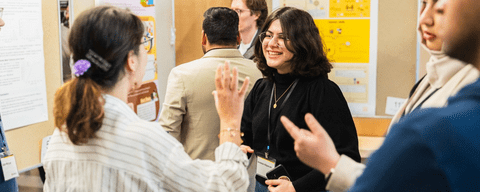Supporting you from your first term to convocation
Information, resources, and supports for graduate students at Waterloo.
Events
2026 GRADflix showcase
You're invited to join Graduate Studies and Postdoctoral Affairs for a viewing of finalist GRADflix submissions before the winners are announced.
Unlocking Opportunities Beyond the Classroom
Learn how to identify opportunities such as unique roles, groups, and events that can set you apart.
Demystifying Comprehensive and Qualifying Exams
Learn how to prepare for one of the biggest milestones in your program.
News
Participate in the Winter 2026 Student Experience Survey
Graduate students are invited to share their experiences at the University of Waterloo through the Winter 2026 Student Experience Survey (SES), running from February 9–27, 2026.
Cybersecurity and Privacy Institute's 2026 Graduate Student Conference: Call for submissions
The Cybersecurity and Privacy Institute is currently accepting poster and abstract submissions for their 2026 Graduate Student Conference.
The re-launch of the Ontario-Ukraine Solidarity Scholarship
Initially announced on April 6, 2022, in response to the Russian military invasion of Ukraine, the province reiterated its support through the continuation of the Ontario-Ukraine Solidarity Scholarship through to 2026-2027.






